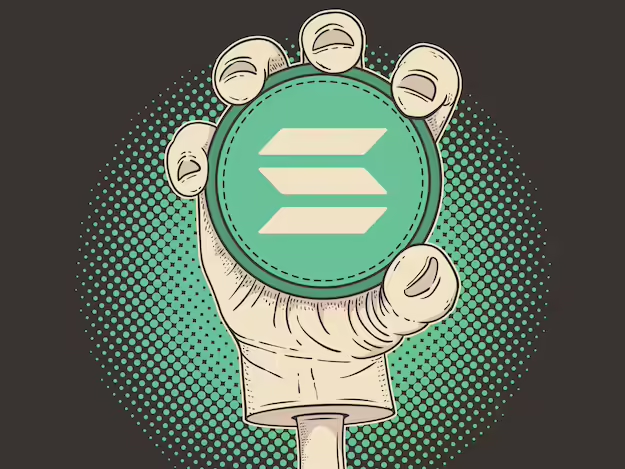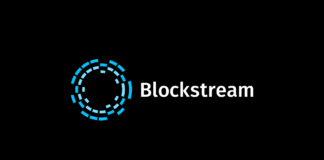The Solana blockchain, known for its lightning-fast transaction processing and growing ecosystem, has recently witnessed a significant shift in its fee structure. In a landmark governance decision, Solana validators have been granted the authority to retain 100% of the priority fees collected from transactions, a departure from the previous model that divided these funds between burning and validator rewards. This change is a notable development in Solana crypto Tokenomics.
This strategic move, approved by over 77% of Solana governance participants, aims to enhance the network’s security and efficiency by aligning the incentives of validators with the overall health and performance of the Solana ecosystem. The implications of this policy change are far-reaching, as it promises to reshape the dynamics between validators, transaction submitters, and the Solana community as a whole, highlighting the importance of the Validator Vote in Network Decentralization.
Understanding Solana’s Priority Fees
Solana’s network architecture incorporates a unique feature known as priority fees, which allow users to pay an additional fee to increase the likelihood of their transactions being processed more quickly. These priority fees were previously split between burning and rewarding validators, a model that had unintended consequences for Transaction Prioritization and priority current weight, often leading to priority likes.
The Shortcomings of the Previous Fee Model
Under the previous fee structure, half of the priority fees were effectively ‘burned,’ or removed from circulation, while the other half went to the validators. This arrangement created a situation where validators were incentivized to engage in ‘side deals’ with transaction submitters, as they sought to maximize their SOL rewards. This practice, while potentially lucrative for individual validators, was deemed detrimental to the overall integrity and efficiency of the Solana network, raising concerns about Validator Ethics and Validator Collusion.
The Shift Towards Validator-Centric Rewards
The recently approved governance proposal, known as SIMD-0096, aims to address these concerns by directing the entirety of priority fees to the validators. This change is expected to align the incentives of validators more closely with the network’s security and performance, as they will be directly rewarded for their efforts in maintaining the Solana blockchain, thus enhancing Validator Revenue and Validator Profitability by ensuring they receive the Reward Full Priority Fee.
Implications for Solana’s Network Stability
By granting validators the full priority fee amount, the Solana ecosystem hopes to see a marked improvement in network stability and efficiency. Validators, who are responsible for confirming transactions and upholding the network’s security, will now have a stronger financial incentive to prioritize these critical functions over any potential side deals or other activities that could compromise the Solana blockchain’s integrity, thereby increasing Validator Accountability and Validator Uptime.
Addressing Concerns About Inflation
One of the primary concerns raised by the community regarding the SIMD-0096 proposal was its potential impact on Solana’s inflation rate. Since the previous model involved burning half of the priority fees, the removal of this deflationary mechanism raised questions about the long-term inflationary pressures on the SOL token, highlighting the Inflation Impact of the Fee Burn.
However, proponents of the proposal argue that the overall impact on inflation will be minimal, as the ‘normal’ network fees will continue to be subject to a burn mechanism. Additionally, they contend that the benefits of improved network security and efficiency outweigh the potential inflationary concerns, especially given Solana’s commitment to addressing these issues through ongoing governance processes and technical upgrades, which are integral to its Consensus Mechanism.
The Role of Solana Validators

Solana validators play a crucial role in the network’s operation, as they are responsible for running the software that confirms transactions and maintains the overall security of the blockchain. These validators are essential participants in the Solana ecosystem, and their efforts are instrumental in ensuring the network’s smooth functioning and continued growth, acting as key Block Producers while mitigating Validator Centralization through robust Validator Infrastructure and preventing Validator Censorship.
Enhancing Validator Incentives
By granting validators the full priority fee amount, the Solana governance has taken a significant step in enhancing the incentives for these crucial network participants. This move is expected to encourage validators to prioritize their efforts towards maintaining the network’s stability, processing transactions efficiently, and upholding the overall integrity of the Solana blockchain, thereby positively impacting Staker Rewards, Staker Delegation, and Staking APY, as well as integrating with platforms like stake bonk and step finance solana.
Implications for Transaction Submitters
The shift in the fee structure will also have implications for transaction submitters on the Solana network. Under the previous model, where half of the priority fees were burned, transaction submitters had a limited incentive to pay the additional fees. However, with validators now retaining the full priority fee amount, transaction submitters may be more inclined to pay these fees to ensure the timely processing of their transactions, potentially leading to increased network activity and revenue for validators. This change in Validator Commissions is a key aspect of what is proposed pay distribution in the new model, as noted by kenny sol and tao validator.
Potential Impacts on the Solana Ecosystem
The approval of the SIMD-0096 proposal is poised to have far-reaching consequences for the Solana ecosystem. By aligning the incentives of validators with the network’s overall performance, the Solana community expects to see improvements in areas such as transaction throughput, network stability, and user experience.
Ongoing Governance and Technical Enhancements
The Solana ecosystem is known for its commitment to continuous improvement and innovation. The SIMD-0096 proposal is just one example of the network’s ongoing governance processes, which aim to adapt and refine the platform’s features and functionalities based on community feedback and emerging needs. This is particularly important as Solana continues to evolve from its Mainnet-beta phase.
The Broader Implications for Blockchain Governance
The Solana case study highlights the critical role that governance plays in the evolution of blockchain networks. By empowering its community to make informed decisions, Solana demonstrates a proactive approach to addressing complex challenges and aligning the incentives of various stakeholders. The use of Quadratic Voting could be a potential method to further enhance this governance model.
Conclusion
The Solana network’s decision to grant validators the full priority fee amount is a significant milestone in the platform’s development. By addressing the incentive misalignment in the previous fee structure, Solana aims to enhance the network’s security, efficiency, and overall performance, ultimately strengthening its position as a leading blockchain ecosystem. This governance-driven change underscores Solana’s commitment to continuous improvement and its ability to adapt to the evolving needs of the crypto community.
FAQs
What is the recent governance decision related to Solana’s fee structure?
The recent governance decision allows Solana validators to retain 100% of the priority fees collected from transactions, departing from the previous model that divided these funds between burning and validator rewards.
What are the implications of the recent policy change for Solana’s ecosystem?
The recent policy change aims to reshape the dynamics between validators, transaction submitters, and the Solana community, highlighting the importance of the Validator Vote in Network Decentralization.
How will the recent shift in fee structure impact Solana’s network stability?
Granting validators the full priority fee amount is expected to improve network stability and efficiency by aligning their incentives with the network’s security and performance, enhancing Validator Accountability and Validator Uptime.
What are the potential impacts of the recent fee structure change on transaction submitters?
The shift in the fee structure may lead to increased network activity and revenue for validators, as transaction submitters may be more inclined to pay additional fees to ensure timely processing of their transactions.
Table of Contents
Disclaimer: The information contained in this article is for informational purposes only. It should not be considered as financial or investment advice. The reader should do their own research before making any financial decisions based on the information provided above. Hash Herald is not responsible for any losses in market




